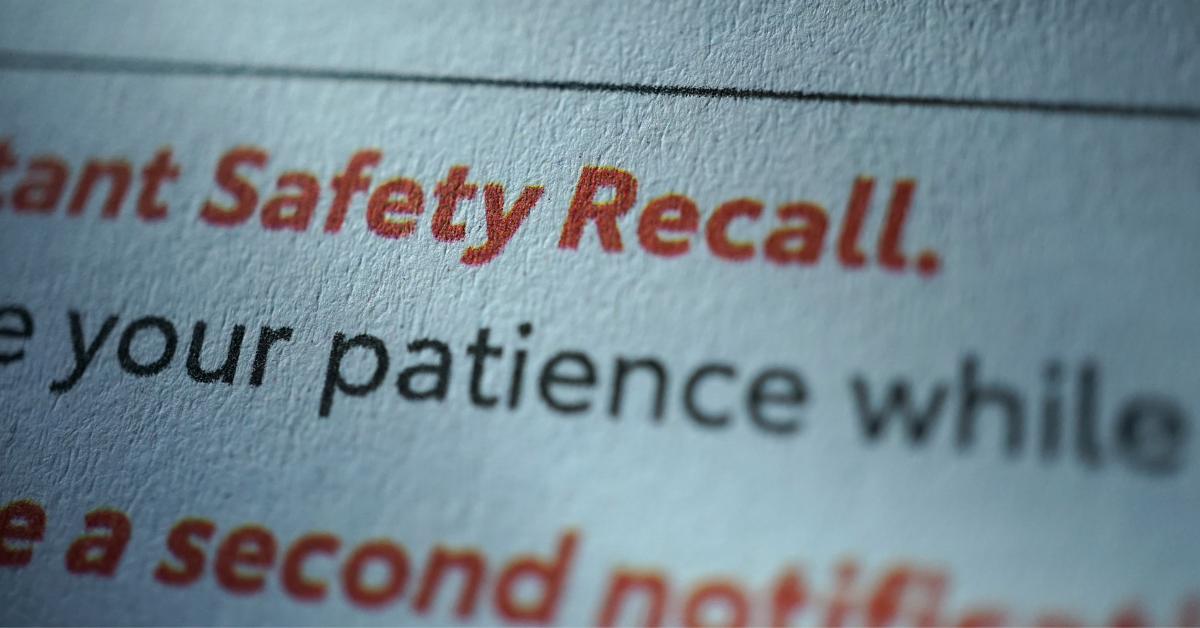It seems that we are all familiar with stories of a person being injured after a seemingly mundane product malfunctioned. Or often hear of companies announcing widespread recalls for products or parts that are causing unintended effects.
Product liability serves to correct these wrongs and hold manufacturers responsible when their product causes injury to a person or their property. In Louisiana, such claims are governed by the Louisiana Products Liability Act (LPLA).[1]
Did You Know? Your Questions Answered
1. Who can be sued for products liability in Louisiana?
Under the LPLA, the defendant in a products liability suit must be a manufacturer. But because there may be many hands that go into a final product, the Act’s coverage extends to anyone in the chain of design, manufacturing, distribution, or sale of the defective or dangerous product. That is, any manufacturer or maker who produces, makes, fabricates, constructs, designs, remanufactures, reconditions, or refurbishes a product. It can also include anyone who manufactures a component part of a product, or a seller who has control over the design, construction or quality of the product.
The Act further extends to retailers, wholesale distributors, and other persons or entities involved in the preparation or distribution of the product.
2. What kind of products can leave a manufacturer vulnerable to a products liability claim?
The LPLA provides for remedies for injuries that are caused by products that are “unreasonably dangerous.” An unreasonably dangerous product falls into one of the following categories:
- a product that is unreasonably dangerous in construction or composition.
- a product that is unreasonably dangerous in its design.
- a product that gives an inadequate warning.
- a product that breaches a manufacturer’s express warranty.
While the Act does list these as the “exclusive” theories of products liability, an injured party could assert a products liability claim against a manufacturer who failed to adequately train another, such as an installer.
In all cases, the defect must have existed at the time that the product left the manufacturer’s control (ie. left the production plant or at the time of installation) or must be the result from a reasonably anticipated alteration or modification of the product. For example, a manufacturer of pots can reasonably anticipate that the pot will be heated (altered) for its intended use to cook.
It is important to remember that the injured party’s own negligence will be considered in awarding damages in a products liability suit. If an injured party is misusing a product or their negligent use helps lead to their injuries, their damages award will be deducted, if not totally barred.
3. How long do you have to sue for injuries caused by an unreasonably dangerous product?
Whether your person or property was injured by a manufacturer’s malfunctioning product, you have only one year from the date of the injury to file a claim. However, if you weren’t immediately aware that your injuries were related to the defective product, the time starts to run from the time you knew or reasonably should have known about your injury and its connection to the defective product.
Legal Representation
If you or someone you know is seeking legal advice regarding product liability, please give us a call. Our experienced attorneys are prepared to provide advice and personalized legal representation.
Disclaimer: The information contained in this article is provided for informational purposes only and is not intended as legal, financial, investment or tax advice from Loeb Law Firm (or the individual author), nor as a substitute for legal counsel, and should not be relied upon as such. Users of our website should seek the advice of an individual attorney, licensed in the user’s jurisdiction, for any legal questions concerning a specific factual situation. By using Loeb Law Firm’s website, reading or commenting on posts, articles or blogs, or sending inquiries through the site or contact email, you confirm that there is no attorney-client relationship between you and Loeb Law Firm. With respect to the content of this article, laws frequently change and what might be accurate one day may not be accurate the next. Loeb Law Firm therefore reserves the right to edit all blog posts, articles or other website content at any time, without prior notice. Loeb Law Firm is not responsible for any errors or omissions in the content of this article or our website or for damages arising from the use or performance of this site under any circumstances. Similarly, any links to third party sites or information contained in this article or on our website are not intended as, and should not be interpreted by the user, as constituting or implying our endorsement, sponsorship, or recommendation of the third party information, products, or services found therein.
[1] La. Rev. Stat. § 9:2800.51-60



